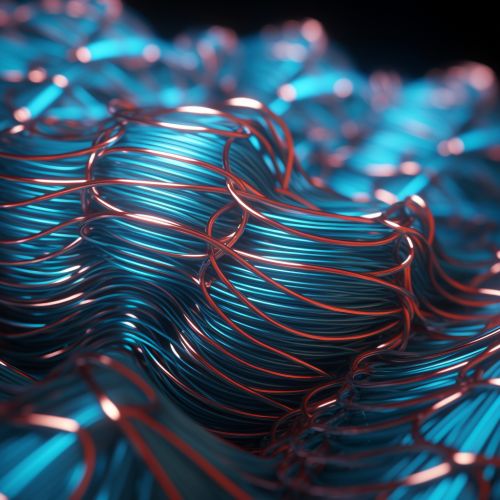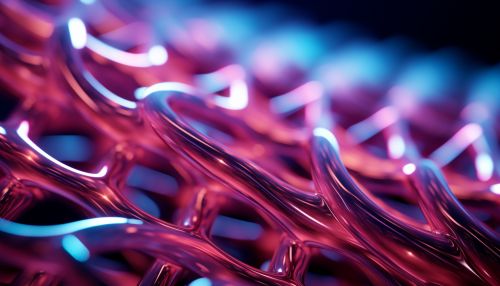Quantum Computing with Topological Insulators
Introduction
Quantum computing is a rapidly developing field of study that leverages the principles of quantum mechanics to process information. One of the promising materials for the realization of quantum computers are topological insulators. These are materials that behave as insulators in their interior but whose surface contains conducting states, meaning that they can conduct electricity along their edges or surfaces, but not through their middle.


Quantum Computing
Quantum computing differs fundamentally from classical computing, which is based on the manipulation of bits. In a classical computer, a bit is a single piece of information that can exist in two states – one or zero. Quantum computing, on the other hand, uses quantum bits, or qubits, which thanks to the principle of superposition can exist in any combination of states simultaneously. This allows quantum computers to process a vast number of calculations at once, making them exponentially faster than classical computers for certain tasks.
The power of quantum computing lies in the ability to perform complex calculations and simulations that are beyond the reach of even the most powerful classical computers. However, building a practical quantum computer is a significant challenge due to the need for qubits to be in a state of quantum coherence, where the quantum states are linked through a phenomenon known as quantum entanglement.
Topological Insulators
Topological insulators are a unique class of materials that have insulating interiors but conductive surfaces. The term "topological" in topological insulators refers to the fact that the surface states of these materials are protected by topological invariants, mathematical properties that remain constant even when the shape of the material is deformed.
The discovery of topological insulators has opened up new avenues in the field of condensed matter physics, and these materials have potential applications in various areas of technology, including quantum computing. The surface states of topological insulators are immune to local perturbations, which makes them promising candidates for the realization of robust qubits, the fundamental building blocks of quantum computers.
Quantum Computing with Topological Insulators
The unique properties of topological insulators make them a promising platform for quantum computing. The surface states of topological insulators are protected by time-reversal symmetry, which means that they can't be easily disturbed by impurities or defects in the material. This makes topological insulators potentially useful for creating stable qubits.
One of the key challenges in quantum computing is maintaining the quantum coherence of qubits. Qubits are extremely sensitive to their environment, and any interaction can cause them to lose their quantum state in a process known as quantum decoherence. However, the surface states of topological insulators are robust against local perturbations, which could help to maintain the quantum coherence of qubits.
Furthermore, topological insulators could potentially be used to realize a type of qubit known as a topological qubit. Topological qubits are thought to be more robust against errors than other types of qubits, which could make them particularly useful for quantum computing.
Challenges and Future Directions
While topological insulators hold great promise for quantum computing, there are still many challenges to be overcome. One of the main challenges is the need for high-quality topological insulator materials. While several topological insulators have been discovered, many of them have imperfections that can interfere with their topological properties.
Another challenge is the need to better understand the properties of topological insulators and how they can be manipulated for use in quantum computing. Despite the progress that has been made, much is still unknown about these fascinating materials.
Despite these challenges, the field of quantum computing with topological insulators is an active area of research, and new discoveries are being made on a regular basis. With further research and development, topological insulators could play a key role in the realization of practical quantum computers.
